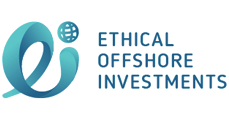A guide to staying the course during global elections
Staci West – FundCalibre
25 July 2024

In recent years, the adage that politics doesn’t significantly influence financial markets has been a common refrain among fund managers. Many view political events as mere “noise” with minimal long-term impact on market performance.
However, recent developments, such as the French elections causing financial market instability, have challenged this notion. With the US election looming in November, investors might feel apprehensive. Yet, the key takeaway is to avoid getting overly entangled in political fluctuations and maintain a steady investment strategy.
Looking back at UK and Indian elections earlier this year
Traditionally, elections and political events have caused short-term volatility but have not substantially altered market trajectories. For example, James Thomson, manager of the Rathbone Global Opportunities fund, emphasises “we are relatively agnostic of the political backdrop as long as we avoid the extreme ends of the political spectrum.” This perspective was evident during the recent UK election, where a decisive Labour party victory brought stability without significantly impacting market fundamentals.
Emerging markets, often perceived as more susceptible to political disruptions, have shown resilience in recent elections. The Indian election, for instance, caused a temporary market dip but soon stabilised as investors recognised the continuity of Prime Minister Modi’s economic agenda. The M&G Emerging Markets team noted that despite initial concerns about election-induced volatility, markets have remained relatively calm. They believe that subtle political shifts could potentially open new investment opportunities in these regions.
When politics and economics collide
While political events generally have a limited long-term impact, there are exceptions, especially in countries with high government debt. France is a prime example, where a debt-to-GDP ratio of 112%* has raised concerns. The financial markets’ primary worry isn’t the rise of a far-right government but rather political paralysis that could hinder efforts to address the deficit.
John Chatfeild-Roberts, investment manager on the Jupiter Merlin Portfolio range, explains the problem: “Bond market investors breathed a sigh of relief about the National Rally losing (its intended fiscal plans set alarm bells clanging in Brussels). However, depending on the outcome of the political horse trading in Paris to form a government and its ability then to push through policies, the outlook remains uncertain.
“The far left’s economic policies are just as alarming to Brussels and the bond markets as those of the far right; if executed they would most likely cause investors to seek a ‘risk premium’ for lending to the French government. On the other hand, if France’s governing system becomes paralysed, little will be done to help overcome economic stagnation or reduce France’s very overstretched government finances.”
This situation illustrates how political uncertainty can impact specific sectors, such as banking, which in France is particularly vulnerable due to reliance on wholesale funding.
The US Election
The upcoming US election also poses potential risks, with the US debt at 122% of GDP* and no clear plans from either political party to address it. While stock markets might be less directly affected, bond markets and the dollar could experience volatility. The imposition of tariffs and trade restrictions, particularly under a potential Trump presidency, could disrupt various sectors, including technology, autos, electronics, and retail, and contribute to inflationary pressures.
Despite these risks, some analysts predict stronger economic growth under a Trump administration. George Brown, Senior US Economist at Schroders, says “if Trump were to win the election, our expectation is that US growth would be stronger and inflation firmer. However, the Trump campaign has been light on detail and so it is difficult to make assumptions about economic policy.
“One thing that we are confident about is that most of the macroeconomic impact won’t be felt until 2026 onwards. In terms of growth, our analysis suggests the US economy would expand by 2.2% in 2025 under a second Trump presidency. It would then accelerate to 2.7% in 2026 as the administration’s growth-promoting policies kick in, before easing back to 2.3% in 2027 as higher inflation weighs on consumer spending.”
Investment strategies in turbulent times
Given the potential for political events to create market turbulence, some investors adopt a defensive stance. Steve Kelly, manager of the AXA Framlington American Growth fund, remains cautious about cyclical sectors and believes that the current bullish sentiment may be tested in the coming year. However, he also anticipates that interest rate peaks could ease valuation pressures, benefiting less cyclical growth companies.
The recent French election underscores the fact that high debt and political instability can significantly influence markets. However, for most investors, the best strategy remains to stay the course and not overreact to political events. Active management can play a crucial role in navigating these uncertainties by adjusting portfolios to mitigate risks and seize opportunities as they arise.
Political events and elections undoubtedly introduce a layer of complexity to financial markets. However, history shows that the long-term impact of politics on investments is generally limited. Investors should focus on the fundamentals of their investments rather than getting swayed by political headlines.
For those particularly concerned about political instability, considering global or multi-asset funds can provide additional diversification and risk management. These funds can spread investments across various regions and asset classes, potentially cushioning against political shocks in any single country.
Three funds to consider
Mid Wynd International Investment Trust
Mid Wynd International Investment Trust is a core option for any investor looking for a conservatively-managed offering that taps into a number of global trends. The trust uses a thematic approach to portfolio construction with a strong sustainability focus running through the investment process. The portfolio has been a consistently strong performer, whilst demonstrating lower volatility when compared with many of its peers.
M&G Episode Income
M&G Episode Income is a multi-asset fund that invests directly in individual stocks and bonds. The name “Episode” refers to those periods of time when investors’ emotions cause them to act irrationally. The manager uses behavioural finance to find pockets of value and invest against the herd, rather than following it.
WS Montanaro Global Select
WS Montanaro Global Select is an unconstrained quality growth strategy that scours the globe in search of the best small and mid-cap companies. This high-conviction fund looks for businesses that are profitable, have a long runway of growth and offer sustainable competitive advantages.
*Source: Trading Economics, government debt to GDP, December 2023
Please Note:
This article was first published by Fund Calibre and is provided for information only. The views of the author and any people quoted are their own and do not constitute financial advice. The content is not intended to be a personal recommendation to buy or sell any fund or trust, or to adopt a particular investment strategy. However, the knowledge that professional analysts have analysed a fund or trust in depth before assigning them a rating can be a valuable additional filter for anyone looking to make their own decisions. Past performance is not a reliable guide to future returns. Market and exchange-rate movements may cause the value of investments to go down as well as up. Yields will fluctuate and so income from investments is variable and not guaranteed. You may not get back the amount originally invested.
Please speak to Ethical Offshore Investors or your personal adviser BEFORE you make any investment decision based on the information contained within this article.
At Ethical Offshore Investments, we can access the funds mentioned in this article on the various offshore investment platforms we offer. We do NOT CHARGE any additional entry and/or exit fees to purchase these funds for our clients.
As we aim not to use commission paying funds, we will access the lowest charging version of the managed fund that is available on the relevant platform…… resulting in more of the investment growth staying in your pocket.
Speak with Ethical Offshore Investments to learn how you can save on your investments costs
Socially Responsible Investing – Ethical Business Standards
